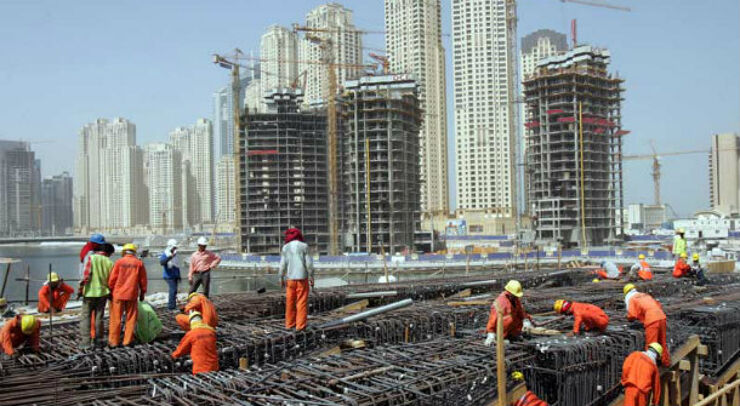
Carbon is no longer at the periphery of projects – it’s becoming a key focus for project teams and the infrastructure industry as a whole. Jon Casey of Atkins discusses how it can deliver wider innovation benefits.
What interests me is what the focus on carbon can do, not just for moving us towards a zero-carbon future, but how it can change our approach to problems, reinvigorate innovation and help find new ways of working.
To demonstrate this, I want to share three examples of where a carbon focus has led to not only more sustainable outcomes, but to widespread innovation.
At Atkins
Atkins has been involved in carbon reduction on infrastructure and building projects throughout our existence, as we’ve always been driven to deliver efficient projects, which in turn drives carbon reduction.
Focusing on more specific carbon management, as far back as 2006, I’ve been involved in creating carbon calculation tools to inform design development. These original Excel tools served the purpose of raising awareness of carbon issues on a project. However, like all Excel tools, they don't allow for fast, accurate testing of options and that's their major Achilles heel.
Using my database expertise, it was very evident to me that a central software tool would enable much more effective calculation and assessment of project options to identify those that have the best carbon performance.
In 2008, Keith Clarke, our CEO at the time, applied his vision for carbon and sustainability on infrastructure projects to support developing just such a tool, from which we created our Carbon Knowledgebase.
It's one that we still use today as industry-leading best practice, and which has been deployed as the Rail Carbon Tool.
Our carbon management expertise and our Carbon Knowledgebase tool enable us to help our clients understand and better manage carbon on their projects, ranging from using the Carbon Knowledgebase to provide strategic insight to programme directors, which leads to development of carbon strategies, to direct application of the Carbon Knowledge at a detailed design level.
With clients
One of the strongest case studies I’ve seen for a carbon focus leading to innovation is through our work on the Edinburgh to Glasgow Improvement Programme.
As part of this, we ran a carbon workshop for the client to identify alternative low-carbon solutions for their project. This started out by focusing solely on the hot spots shown in the Carbon Knowledgebase and alternative, lower carbon design options.
However, we were able to go significantly beyond this. With the whole project team present, as each option was identified we were able to identify the other parallel benefits related to the separate disciplines, e.g. a change in design enables an alternative product to be used, which leads to quicker, cheaper, safer construction, less site neighbour disturbance, etc.
As each low carbon idea was put forward, the other team members would identify the benefits of that idea related to their discipline or function. We maintained this approach throughout the workshop, to the extent that we established an extensive specification of carbon reduction opportunities, but also a significantly larger, solution-specific sustainability agenda.
Beyond both the carbon reduction and sustainability agenda development, this single workshop also led to a reinvigoration of innovation in the team.
We started the day looking at carbon and an instruction to use innovation to drive identification of ideas. This was fully accomplished, but it was reinvigoration of innovation that was recognised as the lasting output.
The overriding conclusion is carbon models are crucial to informing low carbon design development, but it is passionate application of engineering and construction innovation combined with an enlightened client that are the real prerequisites and facilitators for achieving carbon reduction.
Within industry
At an industry level, the focus on carbon has created new standards like the PAS 2080 Carbon Management in Infrastructure technical standard. Carbon reduction has also been incorporated into wider innovation schemes, like the Infrastructure Industry Innovation Platform (i3P), in which I'm leading a workstream looking at Optimising and Challenging Design for Better Carbon Outcomes.
My first involvement in this workstream was to identify promising low-carbon solutions.
However, I soon realised that what we were facing wouldn't be solved through individual engineering solutions.
Rather, the much larger issue to resolve is how carbon is managed across a project lifecycle, from its initial inception to all the stages going forwards and the tendering and procurement processes between them.
I've progressed the workstream scope to focus on creating a framework for full project lifecycle carbon management from which many different low carbon solutions will be identified and implemented, while also delivering the wider sustainability benefits, including cost reduction.
The interesting conclusions from these three examples and our associated expertise, are that they show that carbon is ‘just another thing’ we can look at to improve project performance. That’s not to say that we shouldn’t be giving it more focus – we really must give it more focus.
Moreover, there's a stronger case for carbon reduction when we realise that it’s not just about improving sustainability, but about driving overall efficiency and innovation. It’s a win/win.



